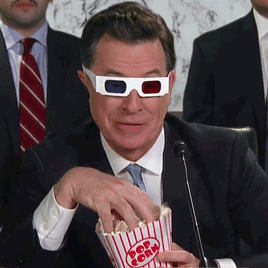I’ve thought about this considerably lately, and there’s a trend by the current US administration to portray everything they’re doing as “good.” It’s “good” to deport people, it’s “good” to defund universities, it’s “good” to attack other countries. There’s always a justification given. So who’s to say who’s the good guy and who’s the bad guy? But there’s a way to answer it, and it works correctly, every time.
In any given conflict, there’s nearly always one leader that can say a single word and end the conflict. If Hitler said “leave” to his troops, that would’ve ended WWII right then and there. When King George said “leave” to the British troops, that ended the Revolutionary War. When Nixon said “leave” to American troops, that ended Vietnam. If Hans Gruber had said “leave” to his men in the Nakamura Building, that’s the end of the movie right there. If Saddam Hussein had said “leave” to his troops in Kuwait, then Bush Sr. would never have needed to send coalition forces in. If Putin says “leave” to Russian troops, that’ll end the war in Ukraine. In every case, you can answer who the aggressor is and who the victim is by simply asking, “If one side said ‘leave’ to their people, does the fighting stop?” If one leader can say “leave” and the fighting ends, their team is the aggressor. Their team is the villain. There’s no “but what about” or “but they’re doing” or “but reasons!!!” — if you can say “leave” and all the violence stops, then congratulations, you’re the bad guy. This rule is simple, common sense, trivial to understand, and applies universally.1
Which brings us to Minnesota.
- If Governor Tim Walz says “Please, for the love of God, leave the ICE agents alone” to the protestors — the protestors will keep protesting, and the conflict will continue.
- If President Donald Trump says “I order you to leave Minnesota” to the ICE agents, the ICE agents will leave — and then the protestors will go home too.
Congratulations, Donald. You’re the villain here. You’re the aggressor. Your team is the aggressor. You, and Kristi Noem, and Stephen Miller can all tell yourselves and Fox News whatever you want, but by the very simple objective measurement of “You could say ‘leave’ but you don’t,” you’re in the same bucket with every other villain in history.
And this is a simple, objective way to look at a conflict. You can’t spin it. (They’ll try, to be sure.) If you could stop the violence and you choose to keep going, you’re the bad guy. It’s not about Federal Law, or ancient birthright, or “but their family killed my family!” If you could say “leave” but you don’t, you’re the villain, as simple as that.
You’re the villain, Donald. You will be to the end of time in every history book. I hope you’re okay with that. I sure wouldn’t be. And remember that the sooner or later, the Devil always reclaims his own.
I’m not going to deeply opine on Renee Good or Jonathan Ross. I remain deeply, deeply troubled by what happened. God help them both. Even if Ross is never charged with the deserved crime of second-degree homicide, even if Trump’s people stonewall and block any investigation, thou shalt not kill is pretty clear, and someday Ross, just like the rest of us, will have to answer to a far higher authority than the American justice system. I hope for him that when he arrives at the Pearly Gates and Saint Peter says, “So how do you think you did down there?” Ross can answer, “I made a terrible, terrible mistake, but I spent the rest of my life atoning for it; please tell Renee I’m sorry, and please forgive me.” Any answer less than that isn’t likely to be enough to save him, if he can be saved at all.
And to Becca Good and to your and Renee’s children, I would like to add that I’m deeply, deeply sorry for your loss. My heart goes out to you all. I have kids of my own, not that different in age from yours. Your children should never have had to grow up without Renee. You should never have had to grow old without her. From what little I’ve seen of her, she seemed like a genuine ray of sunshine, the sort of person anyone would have been lucky to know. I hope you someday get some kind of justice and closure, and that one day, goodness and righteousness will prevail, and that someday, somehow, something good can grow out of this evil soil.
God help you. And God help us all.
- The American Civil War, 1860-1864, initially seems like an exception to the “leave” rule: After all, Lincoln could’ve said “leave” to the Union troops, and that would’ve ended the war, wouldn’t it have? Except that violence includes the totality of violence — pulling out the Union troops still wouldn’t have ended the continuing systematic murder and torture of millions of African slaves. Sadly, this shows why the Civil War was such a mess: Lincoln saying “leave” to his troops, or Lee saying “leave” to his troops, or even Jefferson Davis saying “leave them alone” to the slaveholders would not have stopped the violence and hate, which had diffused throughout Southern society to nearly everyone to the point where the only ones sufficiently empowered to say “leave them alone” were the individual slaveholders — too diffuse for any one leader to end the conflict with a word. ↩︎

